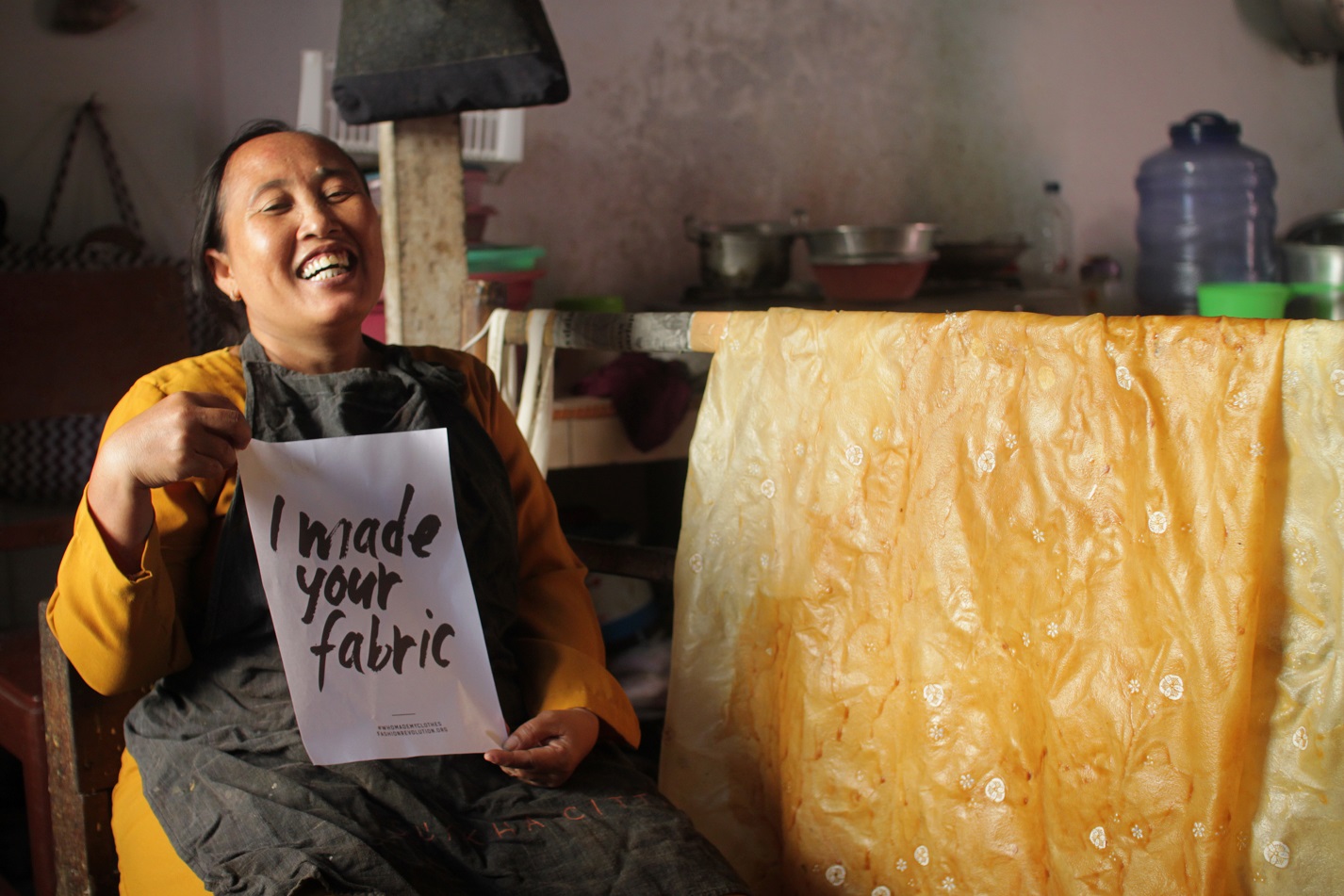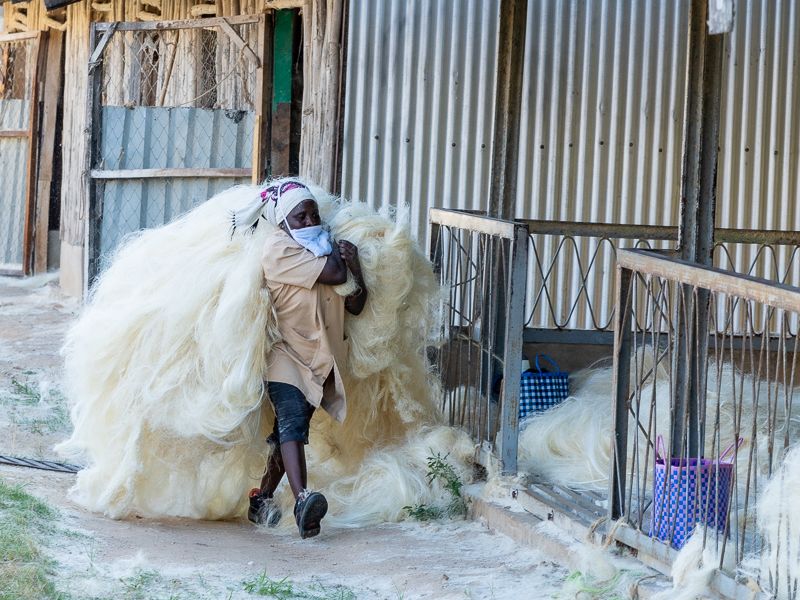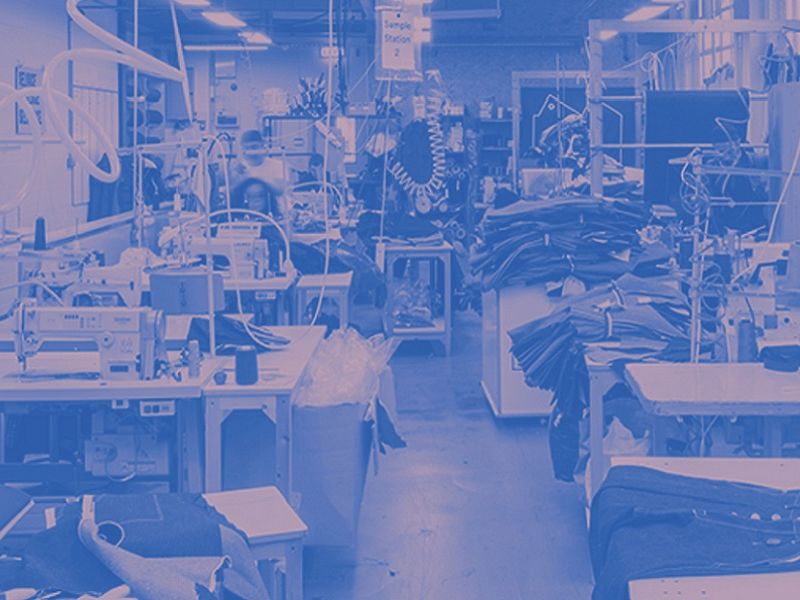Following an open call for proposals in September 2021, The UAL Fashion, Textiles and Technology Institute (FTTI) in partnership with British Council are pleased to announce 5 UK and Official Development Assistance (ODA) country SME partnerships, to share £100k in funding and business support for sustainable design and production under the New Landscapes: Fashion, Textiles and Technology (FTT) Catalyst R&D Grant Scheme.
Spanning London and the Southeast, South and Southeast Asia and Sub Saharan, East and Northwest Africa, the 5 UK Small to Medium Enterprises (SMEs) and their overseas partners will work with FTTI and the British Council on R&D into ideas for the future of sustainable fashion, textiles and related technology. The 5 SME projects focus on sustainable innovation across manufacturing and commerce, materials and digital, with the potential to generate new opportunities for international collaboration in the wake of the Covid-19 pandemic.
R&D will take place in the UK and overseas across the projects from January to April, under the academic guidance of the FTTI. The 5 R&D focus areas are: reducing textile waste through 2D and 3D digital garment sampling skills; developing a circular fibre that supports the working practices of Indonesia's textile communities; a virtual platform to support circular denim practices; ways of re-purposing polyester to produce circular garment fastenings and accessories; and development of a durable and sustainable textile made from sisal blended fibres, for use by Kenyan designers.
The 5 New Landscapes: FTT Catalyst R&D Grant Scheme partners and projects:
Zoe Powell, London + Bertram Flesch, Indonesia
R&D Focus: to create a circular fibre that supports the textile working practices of the local community.
Zoe Powell & Bertram Flesch will work with smallholder farmers and a weaving community near the textile city of Pekalongan to prototype a new kind of circular textile fibre: from a blend of regeneratively grown cotton with agricultural and textile waste.
Joss Whipple, Devon + Patrick Hamrouni, Tunisia + Sola Idowu, Nigeria
R&D Focus: to develop a virtual platform to support circular denim practices, and design for secondary markets.
'Denim to Denim' will convene marginalised perspectives from the denim industry, from technical to design teams across 3 countries. The project will support cross-cultural collaboration to foster circular solutions for denim design.
Gabrielle Shiner-Hill, London + Nusrat Mahmud, Bangladesh
R&D Focus: to develop methods to support the education of 2D and 3D digital garment sampling skills, and ultimately help reduce textile waste in manufacturing contexts.
Gabrielle Shiner-Hill and Nusrat Mahmud will combine 3D software knowledge and textile expertise, to develop methods of supporting women, in particular, to attain skills in digitisation and 3D sampling solutions.
Tim Cross, Plymouth + Mahmudal Hoq, Bangladesh
R&D Focus: to devise methods to re-purpose polyester to produce circular garment fastenings and accessories.
Tim Cross and Mahmudal Hoq aim to recycle 100% locally sourced polyester, for the production of recyclable garment fastenings including buttons, zips and badges. The project will advance circular practices in Bangladesh and reduce reliance on imported products.
Martyn Roberts, Ramsgate + Iona McCreath, Kenya
R&D Focus: to develop a durable and sustainable textile made from sisal blended fibres.
Martyn Roberts of Fashion Scout will advance the development of sisal as a fibre to produce textiles and cloth for Kenyan fashion designers. With large plantations that grow sisal easily, there is an opportunity to promote sisal fibre in sustainable garment design and production systems.
Operating at the intersection of design, STEM, cultural anthropology and business practices, the Fashion, Textiles and Technology Institute at University of the Arts London (UAL) launched in November 2021, with a report mapping the future of the UK’s £74 billion Fashion, Textiles and Technology industry.
The Institute builds on the work of the ongoing Business of Fashion Textiles and Technology (BFTT) Creative R&D partnership, a 5 year industry-led project which focusses on delivering sustainable innovation within the entire fashion and textile supply chain.




